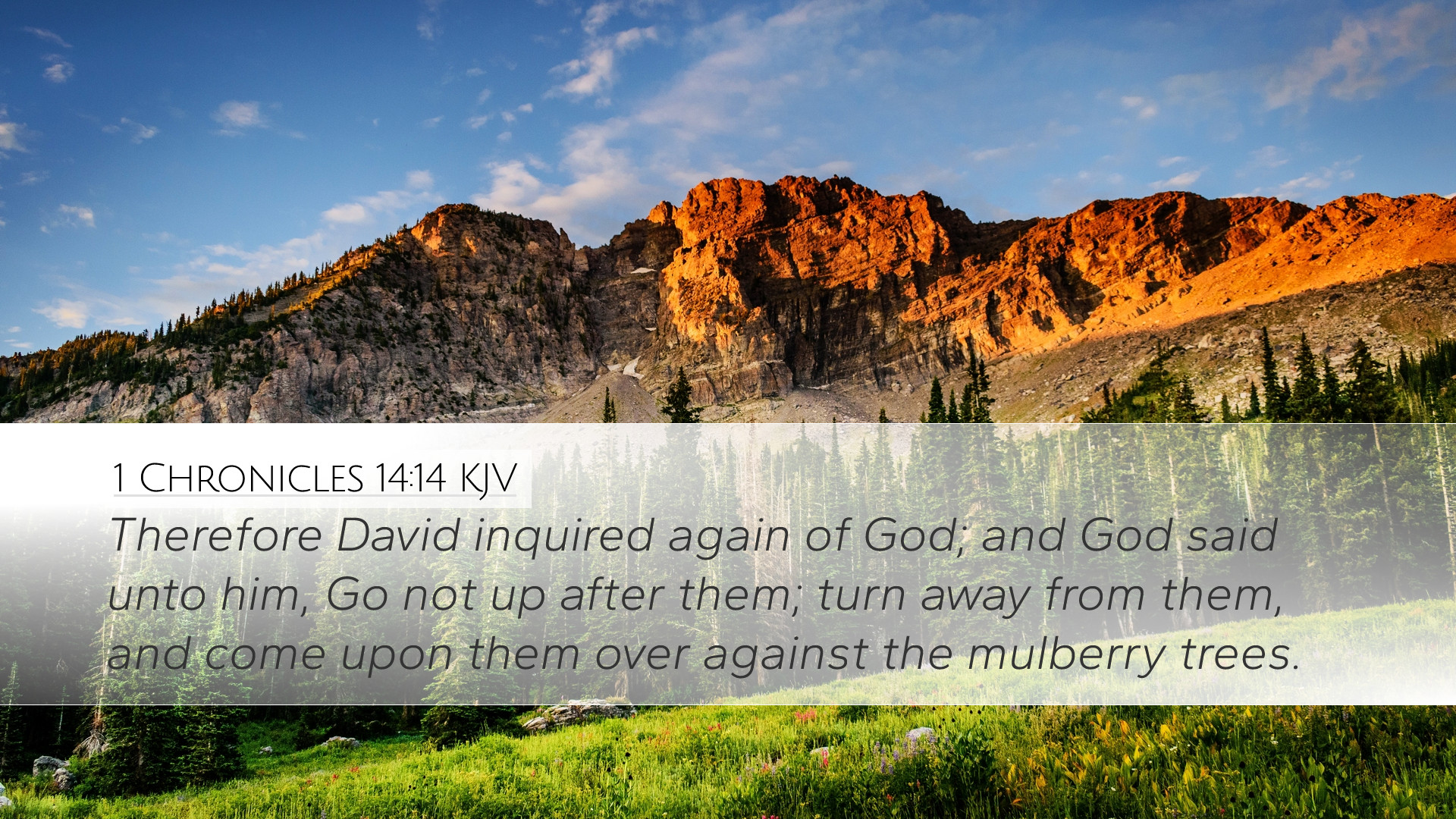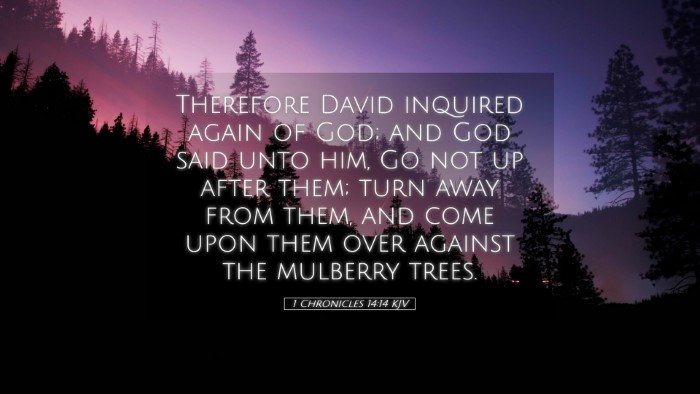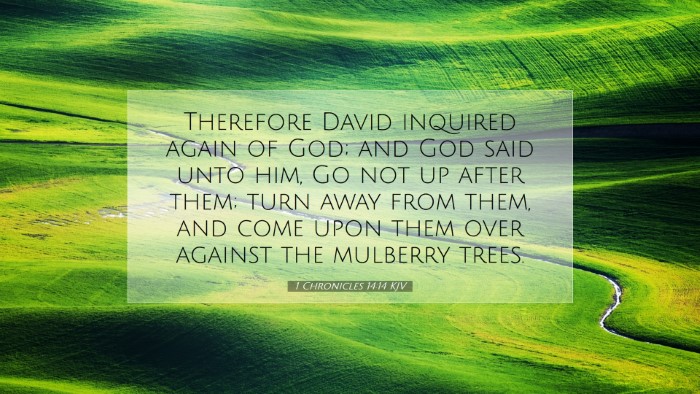Commentary on 1 Chronicles 14:14
1 Chronicles 14:14 states:
"Therefore David inquired again of God; and God answered him, saying, Go not up after them; turn away from them, and come upon them over against the mulberry trees."
Introduction
This verse encapsulates a significant moment in King David's reign, highlighting the importance of divine guidance in leadership and decision-making. The narrative reveals David’s relationship with God and his reliance on prayer and consultation with the Divine before taking action.
Contextual Analysis
In this passage, David is confronted with the Philistine threat. Earlier, the Philistines had invaded the valley of Rephaim, and David, aware of the seriousness of the situation, seeks God’s counsel. The decisions faced by leaders during times of conflict can be fraught with peril, and David’s example of prayer underscores a foundational principle in biblical leadership: seeking God’s will.
Importance of Inquiry
David's act of inquiring of God is crucial. This reflects a heart posture of humility and dependency. Commenting on this, Matthew Henry notes that David understood his need for divine wisdom, stating: "David, though a valiant man, was wise enough to seek counsel from God in what he should undertake."
The Response of God
God’s response to David, as recorded, demonstrates the nature of divine guidance. Rather than providing a straightforward path to victory, God instructs David to approach the Philistines differently: "Go not up after them; turn away from them." Adam Clarke posits that this instruction was part of God preparing David to receive victory in a manner that would amplify God’s glory rather than human ability.
The Role of Patience and Strategy
This instruction requires patience and strategy. Rather than charging headfirst into battle, God calls David to position himself strategically, suggesting a tactical withdrawal followed by a fortified surprise attack. Albert Barnes elaborates on this, noting that God often places His people in positions where waiting to act is integral to His plan, further emphasizing the importance of waiting on the Lord as a form of strength.
Spiritual Readiness
In this vein, spiritual readiness is paramount. Matthew Henry asserts that “the strength of David’s army lies not merely in their might but in their obedience to the divine command.” It suggests our own lives require a similar readiness to embrace God’s timing and strategy in the face of obstacles.
The Symbolism of the Mulberry Trees
God instructs David to prepare for battle over against the mulberry trees. This setting is not just a geographical reference but holds deeper significance. Mulberry trees symbolize boldness and vitality in Hebrew culture, and David’s positioning here illustrates a strategic advantage. Adam Clarke remarks that the mulberry trees represent a place where God’s presence can be particularly experienced, affirming the connection between divine presence and victory in battle.
Application to Contemporary Leadership
This commentary invites contemporary leaders, whether in the church or other spheres, to reflect on the necessity of divine guidance in decision-making. Following David’s path, today’s leaders are called to:
- Seek God’s counsel diligently, especially during crucial moments.
- Exercise patience and strategy in implementing God’s plans.
- Embrace spiritual readiness to act at the right time.
Conclusion
1 Chronicles 14:14 serves as a profound reminder of God’s sovereignty in our endeavors. In times of uncertainty, like David, we must inquire of God, listen for His voice, and be prepared to respond with obedience. The lessons gleaned from this narrative invite pastors, students, theologians, and scholars to cultivate a deeper relationship with God, ensuring that our actions reflect divine wisdom and timing.


